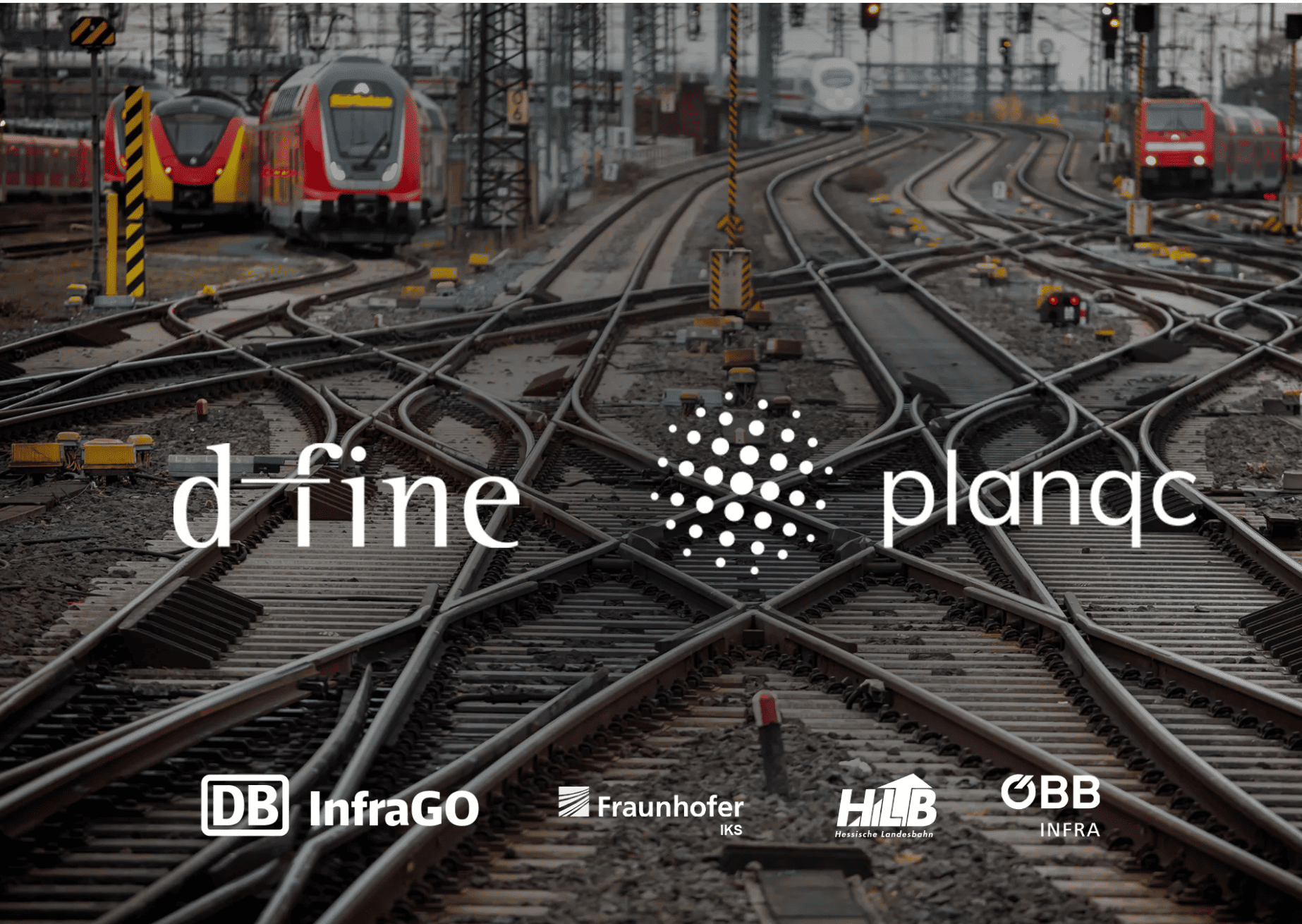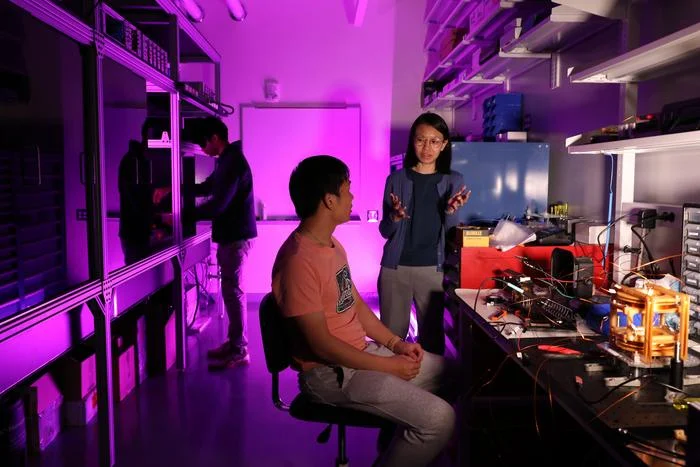Insider Brief
- QCMobility | Rail Transport, led by the DLR Institute of Transportation Systems, is testing how quantum algorithms can improve decision-making in real railway scenarios.
- The consortium of D-Fine and Planqc, supported by Hessische Landesbahn, DB InfraGO, ÖBB Infrastruktur, and Fraunhofer IKS, will apply quantum machine learning and optimization to practical use cases using real data.
- The project aims to benchmark quantum-based approaches against conventional methods to evaluate their potential for improving scheduling, route planning, and timetable reliability in rail transport.
PRESS RELEASE — Fewer delays, better route planning and timetables: there are many potential applications for quantum computers in rail transport with a major practical impact. Complex decision-making processes in particular could be improved significantly faster and more comprehensively with the help of quantum optimisation than with conventional approaches.
This is why QCMobility | Rail Transport – led by the DLR Institute of Transportation Systems – is systematically testing for the first time how quantum-based algorithms can be used in real railway scenarios, from short-term scheduling in the event of disruptions to strategic infrastructure and timetable planning.
In a call for tenders, we sought support from industrial partners who, together with us and with their own problems, real data and parameters, would further develop the use of quantum machine learning (QML) and quantum computing in rail transport.

The consortium D-Fine & Planqc has now been awarded this tender. Hessische Landesbahn, DB InfraGO and ÖBB Infrastruktur are providing practical use cases and real data. The Fraunhofer Institute for Cognitive Systems (IKS) is providing support with expertise in the field of quantum-enhanced AI.
QCMobility | Rail Transport is a sub-project of our mobility project QCMobility under the overall management of the DLR Institute of Quantum Technologies.
Complex optimisation problems with a large scope
Together with the DLR institutes, the consortium wants to find out how quantum computers can help to make rail transport more efficient and reliable.
This is because dispatchers and transport planners are faced with highly complex decisions every day, some of which have to be made within seconds. Which train has priority if a line is blocked? How can roadworks, extreme weather events, delays or bottlenecks in the network be taken into account in real time?
Accurate answers are crucial, as even minor disruptions can lead to major delays in a tightly synchronised operation. Long-term route and timetable planning is also a challenge in which countless dependencies and scenarios must be taken into account.
The use cases come directly from practical partners in the rail sector and form the basis for transferring real challenges into mathematical models and solving them with quantum-based optimisation approaches. Among other things, real timetable data and booking information are used.
The aim is to compare the results with conventional methods and develop a reliable roadmap for the future use of quantum computers in the railway sector. This will make it possible to assess what potential the technology actually offers for rail transport.















